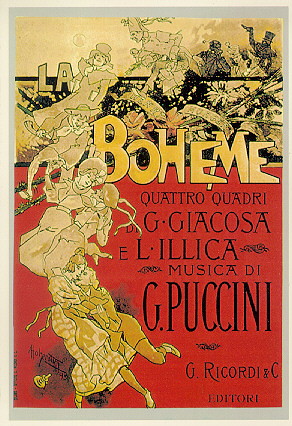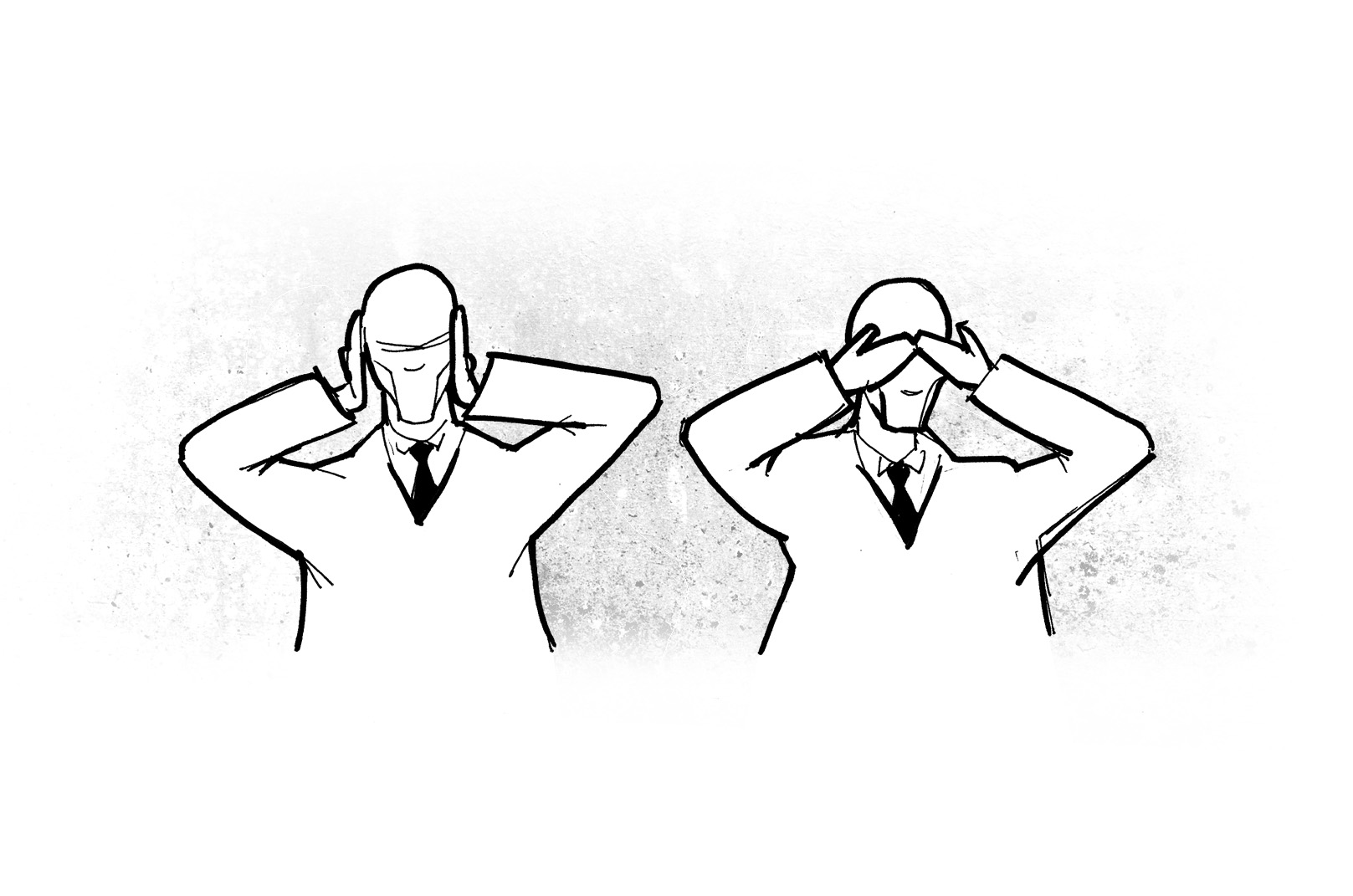Spider-man Versus the Opera
Seattle Center offers diverse entertainment, if you’re willing to pony up for the parking. I found myself trying to find a stall under the shadow of the Space Needle twice last month, holding tickets for two very distinct forms of entertainment. In black tie and shined shoes (and some clothing in between), with my lovely wife sporting a black dress, we entered the Seattle Opera House for a midweek showing of La Boheme. Later, in jeans and T-shirts, we kicked back inside the enormous IMAX Theater and found ourselves tangled in the chaotic web of Spider-man 3.
Swinging between the production of “fine art” and “comic book art”, I found myself considering the cultural juxtaposition:
What’s the real difference between the way Spidey slings and the fat lady sings?
There were certainly some differences in the crowd. White, grey, and silver were predominant hair hues at the Opera House, with lips sipping alcoholic drinks and whispering in hushed tones. More colorful, even purple hair, would be found at the IMAX, arguing over buttered or unbuttered popcorn and spilling Diet Coke on the sticky floors (no food or drink allowed in the Opera auditorium, heaven forefend someone spill their Panini). At the Opera House, a man in a tailored suit discussed the Seattle Art Walk with his girlfriend. At the IMAX, Captain America was sitting behind me, talking about the Rise of the Silver Surfer and Jessica Alba. “Aren’t you dead?” I inquired. The good Captain had also forgotten his mighty shield, and put on a few pounds since he was shot.
 Critics didn’t like Spider-man 3, where the masked human arachnid finds himself trying to propose to his girlfriend while he contends with a vengeful old friend, the man who killed his uncle, and an alien ooze that brings out his own worst impulses. His girlfriend loses her role in a musical, leaves the web-head because he’s too self-absorbed, winds up having dinner with the old friend, and more conflict ensues. “Weak character development”, they said. “Flimsy plot”, they complained. The action sequences were quite spectacular on the IMAX screen, but that merely gets the film a “summer popcorn movie” label from the serious cinema aficionado. Nobody takes it seriously.
Critics didn’t like Spider-man 3, where the masked human arachnid finds himself trying to propose to his girlfriend while he contends with a vengeful old friend, the man who killed his uncle, and an alien ooze that brings out his own worst impulses. His girlfriend loses her role in a musical, leaves the web-head because he’s too self-absorbed, winds up having dinner with the old friend, and more conflict ensues. “Weak character development”, they said. “Flimsy plot”, they complained. The action sequences were quite spectacular on the IMAX screen, but that merely gets the film a “summer popcorn movie” label from the serious cinema aficionado. Nobody takes it seriously.
With two preceding spidery installments, I’ll agree the film is the least cohesive from a narrative standpoint. I didn’t enjoy it much. The pacing seemed off, plot developments rushed. I suspect a longer cut of the film might have yielded a stronger tale, but you only get screen time longer than three hours if your name is Peter Jackson.
Thus, when I sat down to enjoy what is considered one of the most beloved operas of all time, I expected to be astounded with the nuances of character and subtleties of plot. My classically trained wife has the ear for music, so I could trust her judgment on its quality. Here’s what unfurled:

- Act One: A bunch of slacker bohemian artists who don’t work complain that they can’t eat or keep their fire going. One shows up with money so they decide to blow it on partying. Rodolfo bumps into a neighbor gal, tries to seduce her, but then they both head out to party with his friends.
- Act Two: Party time! Rodolfo’s friend Marcello sees his manipulative ex-girlfriend, who left him for an old fossil with a lot of cash. Seeing Marcello and remembering just how hot he is, she manipulates her current boyfriend for a chunk of cash and runs off with the partyers so they can all shack up together.
- Act Three: Time lapse: it’s winter, and Rodolfo’s girl Mimi leaves him because he’s an abusive jerk, angry because he can’t keep her healthy (although he still hasn’t bothered to get a simple job to pay for heat).
- Act Four: Mimi has hooked up with a rich man, but her health is too far gone. She wanders back to the Bohemian loft, weakly professes undying love, and dies. Everyone laments, the curtain falls.
Biting my tongue during intermissions, I bided my time and waited for the artistic revelation to sweep over me. I was certain I was missing something. (By the way, the nine dollar glasses of wine and four dollar cookies in the lobby confirmed that concession prices are the same, be it opera hall or multiplex). La Boheme troubled me; I’d watched Saturday morning cartoons that had more plot than this simplistic yarn. The performers sang many notes, but their characterizations only had one, cardboard cutouts limping through a mundane story arc. There was nothing epic about the characters or their alleged romance. Even the leap from sequence to sequence felt awkward. The music swelled, but the narrative never lifted. The performers took bows and received a standing ovation, and I was perplexed.
Seeking an answer to my apparent ignorance, I asked people later why the opera was so revered; these answers didn’t satisfy either. One argued that “it wasn’t the story that was important” but rather “it was the music and vocals of the performers”. This seems the operatic equivalent of suggesting a movie’s plot isn’t important, as long as “the special effects were awesome”. That argument won’t win a movie any Best Picture Awards, but apparently in opera – if you cover a weak plot with a glass-breaking tenor – all is forgiven?
Please: don’t tell me the story isn’t important in opera and then shoot down superhero movies for paying more attention to action than the character interaction.
In the end, it took a tubby Captain America to help me understand the opera crowd. I’ve attended multiple operas (most recently Don Giovanni, and I should also wear a shirt that boasts “I survived Wagner’s Ring Cycle“) but I also attended the Emerald City Comic Book Convention this year (all things to all people, as it were). I’ve listened to comic book lovers defend even the worst comic book movie because it’s the art form they revere more than the actual art itself. Concurrently, I’ve noticed a great number of recurring patrons at the Opera Hall when my wife and I have attended… discussing the performers, the sets, the director… everything except the story. It’s the fine art equivalent of reading In Touch Magazine or the National Enquirer. It’s celebrity worship, or talent worship, but most notably something other than story worship.
I talk a lot about the idea of meta-narrative: people’s longing for a story that enthralls them, enlightens them, enwraps them, informs them, and in many ways defines them. I think we see this in the way many people love film (particularly where I live in Seattle) as well as literature and various forms of art. That story worship is very real, the identification with the narrative blueprint and certain characters that resonate with us or inspire us. It’s important to remember, however, that story-worship is not the only way in which we suppress the truth of God and exchange it for a false image. That image might not be the story contained within our craft, but the craft itself.
Cultural bias makes us elevate what we feel is truly glorious based on any number of factors: the story, or the singing, or the performance hall and the “scene”, or our fellow patrons, or the special effects, or the creative minds behind it. Heck, maybe we go ga-ga over the marketing genius that went into it, or the story behind the story that led to the story. Any number of these factors can garner our interest. our time, our treasure, our talent… and lead to an unhealthy attention where these elements obscure what truly deserves our attention.
At the end of the day, do I believe the sovereign Creator and Redeemer of the universe has a personal preference between Spider-man and LaBoheme? Does he have disdain for Don Giovanni and praise for Pirates of the Caribbean? Does he abhor Aliens while doting on Der Rosenkavalier? All contain sexuality, violence, and language (just because it sounds pretty in Latin doesn’t mean it isn’t coarse jesting) ill-befitting a godly person… and these elements aren’t absent from our frank and unfiltered Bible either, depicting the wanton acts of sinful people.
Instead of wasting time on whether something is “fine” or “common”, we’d be better served examining what elements are attractive, and why.
Spider-man is not ruining our culture any more or less than LaBoheme. Both have the potential to strike a chord in us, to inspire us or distract us in relation to what is really important in life. We can die of consumption like Mimi – entertainment consumption – or get caught in Spider-man’s tangled narrative web. OR, we can see the hopelessness and shallowness in both stories and look around for the Savior who can save us from the cycle of pain, abuse, meaninglessness, and death. Both stories preach, for those who hear the Spirit speaking through them. Most of us are too busy criticizing the trappings to listen.




I have to say that I’ve become a big fan of Cinemagogue. The first time I listened to a Film & Theology podcast I was so excited because I heard a Christian brother who was passionate about film AND passionate about the gospel.
In your reviews I get to watch as you strip away nonessential elements to get at the core of the characters and stories that we love. Then you apply that analysis not just to the monomyth or some moralistic appeal but to worshiping the Creator.
Awesome.
When I saw this post my curiosity was peaked because I work in live theater (I’m a scenic artist and designer. We do an opera every year) and I’m a Spidey fan.
I agree with the conclusion of your post but I’m a little disappointed with how you arrived there. I feel that you missed 2 critical aspects of La Boheme and I have a theory why.
First. You missed the backstory. I’m talking about the meta-backstory, the story of the opera itself, not the characters back stories. La Boheme was controversial for a number of reasons. One was that it didn’t have the grand story arc that people expected from opera. It seemed to be about regular people. (OK, regular artistic people. OK, stereotyped artistic people.) This isn’t Aida with conquering Egyptians and fiery deaths. It’s more about what we all face. (I promise)
Second, you missed the basic character motivation. Rodolfo is an artists. In the opening scene you have these roomies who love their arts but it’s so hard to make a living following their calling that the poet is burning his life’s work for a little warmth. This foreshadows the real tension to follow.
I’m not going to do a point by point rebuttal, but, in the end, Rodolfo is caught between two loves. He has his calling on one hand and Mimi on the other. He feels he has to choose between these. I think we’ve all been here. God has called us to something and we feel like we have to choose between that and family.
I’m not going to defend the moral tone of the opera either. In the end I think it celebrates the self-destructiveness that is a part but not the end of creative minds. Self included.
I said I had a theory on why you missed this stuff. My theory is that it wasn’t a GREAT production. Unlike films, where Spiderman 3 is the same every time it’s shown, opera is live. Each production focuses on different aspects of the core material. So, even if all the singers hit their notes, the production as a whole may have failed because the director and designers failed to put the story in front of the audience. Sometimes when you want the HULK you get Lou in green paint.
For mw the main difference between opera and film is that everyone’s an expert on film but people are afraid to criticize opera. (It’s also so expensive that you aren’t likely to go multiple ties to make sure you got all the details.) That’s not good for opera.
Please! Keep criticizing. Just make sure you bring the same attention to the core that you do when you see a film.
You make several good points about La Boheme and you might be right about why I missed it! This was certainly more a musing article and less about actually finding the core of either story, and to any opera fans who think I was too harsh – I apologize!
The reality is, I have less lingering dissatisfaction with LaBoheme than with “Spider-bomb 3” (that’s what happens when you don’t have the same screenwriter for your film series and decide to write the third movie yourself – ahem – but I still love you Sam Raimi). I can see a better production of La Boheme, but sadly Spider-man 3 will be the same. EVERY time.
Certainly just as much or more conversation can ensue about Rodolpho and the characters, their motivations, and parallels with our shared story. I wanted to level the playing field a bit between “high” and “common” art forms by poking fun at the story depth level between the two, and if I unnecessarily ravaged LaBoheme, I’ll admit to pushing the pendulum too far the other way.
Thanks again for illustrating useful conversation points that could lead to edification and evangelism! Certainly just as much or more conversation can ensue about Rodolpho and the characters, their motivations, and parallels with our shared story.